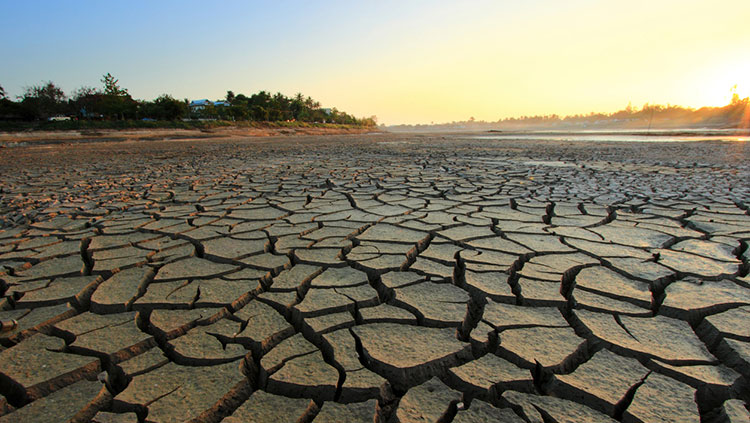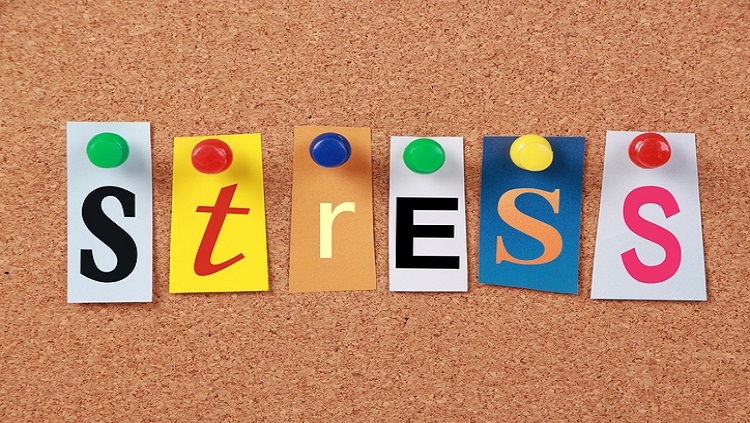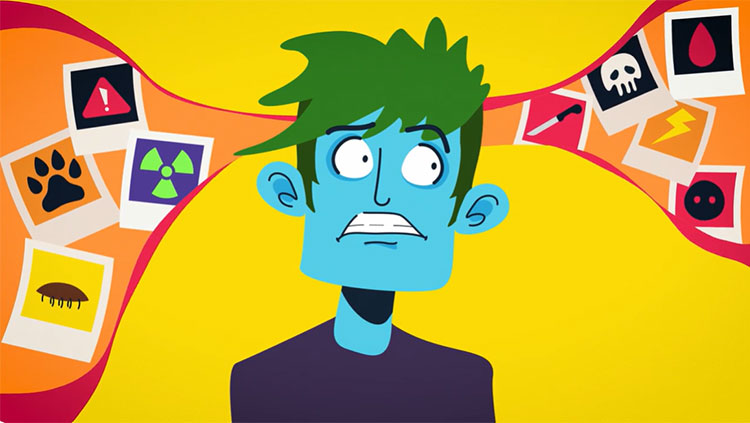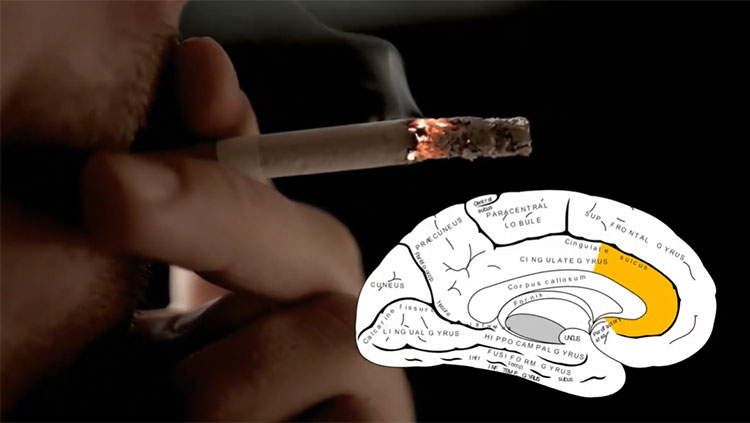The Emotional Weight of Water Stress
- Published13 Jun 2022
- Author Robin Tricoles
- Source BrainFacts/SfN

Sera Young was in Kenya studying food insecurity when she gave disposable cameras to women from seven rural and peri-urban villages in the former Nyanza region of Kenya. Young asked them to snap photos of things that affected what they fed their children. Their pictures of water puzzled her.
When Young asked the women about the images, they told her they had to change their babies’ diet for the day depending on how much water was at hand. Some worried their neighbors would steal water from their home while they were out. Some were dehydrated and couldn’t nurse; they fed their babies cereal instead. Others were beaten if they couldn’t secure enough water to meet their family’s needs. Women reported being anxious and depressed.
One woman dreamt about water.
The lack of clean, available, accessible, and reliable water affects not only people’s physical well-being — it affects their mental health, too.
“Water touches us in a lot of ways that we might not see if we’re not paying attention to water insecurity,” says Young, an associate professor of anthropology and global health studies at Northwestern University, whose work in Kenya continues today.
Water insecurity, often referred to as water stress, exists throughout the world, but varies from place to place. Where the women in Young’s study may stand in line on a hot day for long periods to secure water, in the United States, some families cannot afford their water bills. Or they may be afraid to drink their tap water, as in the case of Flint, Michigan, where dangerous levels of lead and bacteria fouled the city’s water supply in 2014 when the city changed its source of drinking water.
Biocultural anthropologist Alexandra Brewis says she and other researchers are seeing a pattern linking water insecurity to more symptoms of anxiety and mental-health issues.
“When people worry about water, it takes over their lives,” says Brewis, a professor at Arizona State University. A lot of people spend their time worrying about access to enough safe, clean water. Even though there’s more than enough water in the world to go around, she says.
Water is not only needed for survival but is part of human emotional health. The brain requires hydration for healthy cell functioning, which contributes to the performance of attention and memory. Studies show that even in healthy, mildly dehydrated adults, mood can consistently worsen, with complaints of sleepiness and impaired well-being. However, it is not simply dehydration that is harmful to mental health.
“To struggle everyday with water insecurity is often deeply humiliating,” says Brewis, who has studied water insecurity in Ethiopia and Apache Junction, Arizona, among other places. “It’s angering too. It is a tangible thing that reminds you that you have no power.”
Constant worry and heightened negative emotions about water resources affect how the brain works.
“That’s because in the case of something that is chronic and ongoing, like a stressful job or water insecurity, you have long-term hyperactivation of the anxiety circuitry,” says neuroscientist Avi Adhikari, an assistant professor at University of California, Los Angeles. The anxiety circuitry refers to all neural mechanisms that induce anxiety, activating various brain areas that respond to stress such as the hypothalamic-pituitary-adrenal (HPA) axis, amygdala, and prefrontal cortex.
The circuitry evolved long ago to help humans survive severe, immediate threats, like fleeing a predator. Today, it can help us get out of the way of a speeding car. But long-term activation of the circuitry can lead to poor sleep, a higher heart rate, panic attacks, generalized anxiety disorder, and depression.
“If that persists for a long time, it has lots of deleterious effects on the body,” says Adhikari. What’s more, depression may stop us from engaging in pleasurable activities like meeting with friends or doing hobbies. “That’s what makes this a devastating problem. There’s less motivation to do those things [pleasurable activities], but not doing these things increases the depression.”
Long-term exposure of this circuitry to stress hormones, especially cortisol, can cause physical changes in brain areas, like the amygdala, a structure critical for regulating our emotions.
“Cells in those areas actually grow,” says Ilia Karatsoreos, associate professor of psychological and brain sciences at the University of Massachusetts, Amherst. “They become much more reactive and responsive. As those brain areas change because of this repeated exposure, they process information from the environment differently. The things that weren’t threatening, become threatening.”
Meanwhile, parts of the brain that regulate decision making can “dramatically shrink” with chronic exposure to stressors in animal models and even some human models, says Karatsoreos.
“Stress by itself is not the bad guy,” he says. “The problem is that as humans we can engage our stress response for things that haven’t even happened yet. We worry about the future. It shows how it (water insecurity) becomes an all-consuming problem. Resource scarcity of any kind is a huge stressor.”
CONTENT PROVIDED BY
BrainFacts/SfN
References
Boateng, G. O., Workman, C. L., Miller, J. D., Onono, M., Neilands, T. B., & Young, S. L. (2022). The syndemic effects of food insecurity, water insecurity, and HIV on depressive symptomatology among Kenyan women. Social science & medicine (1982), 295, 113043.
https://doi.org/10.1016/j.socscimed.2020.113043
Karatsoreos, I. N., & McEwen, B. S. (2011). Psychobiological allostasis: resistance, resilience and vulnerability. Trends in cognitive sciences, 15(12), 576–584. https://doi.org/10.1016/j.tics.2011.10.005
Pross, N. Effects of Dehydration on Brain Functioning: A Life-Span Perspective. Annals of Nutrition and Metabolism. 2017;70 Suppl 1:30-36. Epub 2017 Jun 15. doi: 10.1159/000463060.
Wutich, A., Brewis, A., Tsai, A. (2020) Water and mental health. WIREs Water. 2020; 7:e1461. https://doi.org/10.1002/wat2.1461
What to Read Next
Also In Emotions, Stress & Anxiety
Trending
Popular articles on BrainFacts.org


















